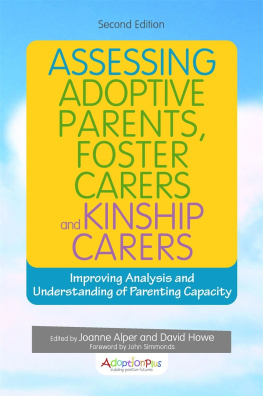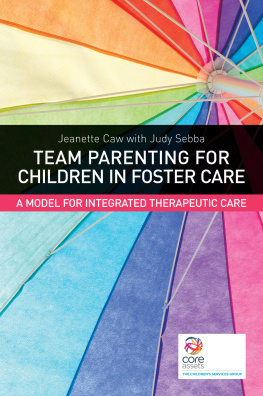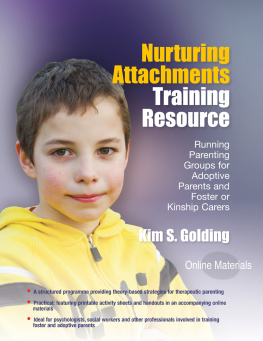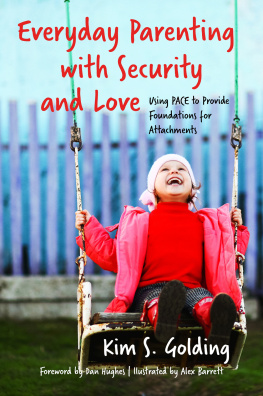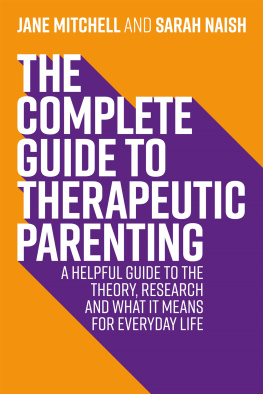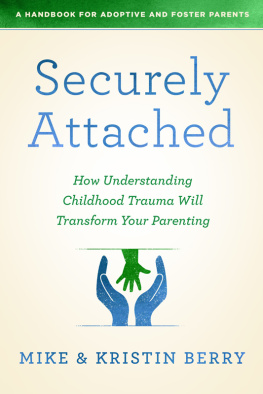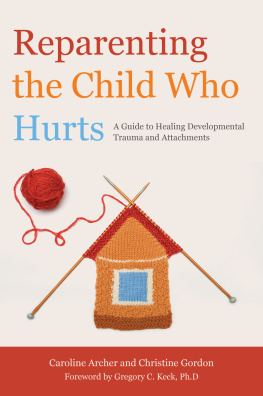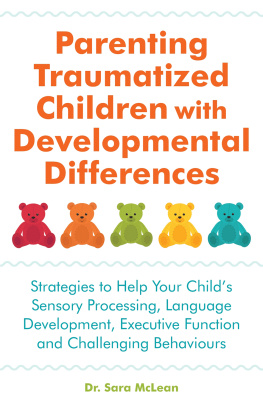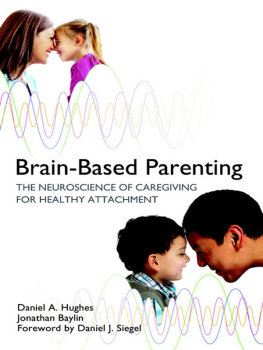
also published in association with Adoptionplus
Billy Says... Series Six therapeutic storybooks to help children on their journey through fostering or adoption
Joanne Alper
ISBN 978 1 84905 667 0
eISBN 978 1 78450 171
Facilitating Meaningful Contact in Adoption and Fostering
A Trauma-Informed Approach to Planning, Assessing and Good Practice
Louis Sydney, Elsie Price and Adoptionplus
ISBN 978 1 84905 508 6
eISBN 978 0 85700 924 1
Preparing for Adoption
Everything Adopting Parents Need to Know About Preparations, Introductions and the First Few Weeks
Julia Davis
ISBN 978 1 84905 456 0
eISBN 978 0 85700 831 2
Parenting Adopted Teenagers
Advice for the Adolescent Years
Rachel Staff
ISBN 978 1 84905 604 5
eISBN 978 1 78450 069 6
of related interest
Assessing Disorganized Attachment Behaviour in Children
An Evidence Based Model for Understanding and Supporting Families
Edited by David Shemmings and Yvonne Shemmings
ISBN 978 1 84905 322 8
eISBN 978 0 85700 663 9
Nurturing Attachments Training Resource
Running Parenting Groups for Adoptive Parents and Foster or Kinship Carers
Kim S. Golding
ISBN 978 1 84905 328 0
eISBN 978 0 85700 665 3
Nurturing Attachments
Supporting Children who are Fostered or Adopted
Kim S. Golding
ISBN 978 1 84310 614 2
eISBN 978 1 84642 750 3
Attachment, Trauma, and Healing
Understanding and Treating Attachment Disorder in Children, Families and Adults
2nd edition
Terry M. Levy and Michael Orlans
ISBN 978 1 84905 888 9
eISBN 978 0 85700 597 7
ASSESSING ADOPTIVE PARENTS,
FOSTER CARERS
and KINSHIP
CARERS
Improving Analysis and Understanding
of Parenting Capacity
Second Edition
Edited by
Joanne Alper and David Howe
Foreword by John Simmonds

Jessica Kingsley Publishers
London and Philadelphia
First published in 2015
by Jessica Kingsley Publishers
This second edition published in 2017 by Jessica Kingsley Publishers
73 Collier Street
London N1 9BE, UK
and
400 Market Street, Suite 400
Philadelphia, PA 19106, USA
www.jkp.com
Copyright Jessica Kingsley Publishers 2015, 2017
Foreword copyright John Simmonds 2015, 2017
All rights reserved. No part of this publication may be reproduced in any material form (including photocopying, storing in any medium by electronic means or transmitting) without the written permission of the copyright owner except in accordance with the provisions of the law or under terms of a licence issued in the UK by the Copyright Licensing Agency Ltd. www.cla.co.uk or in overseas territories by the relevant reproduction rights organisation, for details see www.ifrro.org. Applications for the copyright owners written permission to reproduce any part of this publication should be addressed to the publisher.
Warning: The doing of an unauthorised act in relation to a copyright work may result in both a civil claim for damages and criminal prosecution.
Library of Congress Cataloging in Publication Data
A CIP catalog record for this book is available from the Library of Congress
British Library Cataloguing in Publication Data
A CIP catalogue record for this book is available from the British Library
ISBN 978 1 78592 177 3
eISBN 978 1 78450 456 4
For Ian, Evie and Lily
CONTENTS
FOREWORD
John Simmonds
Creating a family life for a child through adoption or fostering is in many respects quite extraordinary. It is probably a heartfelt conviction for most of us that falling in love with a baby naturally brought into the world is fundamental to their development and wellbeing. We have come to understand in a lot of detail what falling in love might mean, why it is so important and what some of the complexities might be but the detail of the science cannot obscure the power of that fundamental belief in the place of love. Family placement, especially permanent family placement whatever the legal order that might frame it relies quite heavily on the power of love even if it might be more comfortably expressed using concepts like attachment. Becoming a carer or facilitating somebody to become a carer has at its heart the intimate, intricate world of human relating and relationships. It is this that children expect and need and it is our responsibility to provide it.
We know, and this is conveyed very powerfully in the chapters in this book, that falling in love may not be so straightforward when children have been removed from their birth parents and placed in foster care or for adoption. It is likely that those children will have adapted to a series of significant adversities in their lives both pre and post birth. Their expectations of the world and particularly the people in their lives will have defensively adjusted to these adversities. The degree to which it is possible and what it takes for children to re-adjust to more hopeful and positive expectations are difficult questions for professionals, adopters and foster carers. We know from experience that many children do positively adjust but for some this only happens to a very limited extent and the impact on carers in terms of their subsequent re-adjustment stress, disappointment, conflict or maybe breakdown can be very demanding.
The focus of this book is on one critical aspect of these challenging questions: the assessment of prospective adopters and foster carers. There could not be any more significant professional task than to assess and then make a prediction of what is likely to happen if prospective carers are approved and then have a child or children placed with them. As this book makes clear, it is part art and to a limited extent, science. We have come to understand something of the challenge for these carers and indeed for the children but we are relying on our sense of what the issues are and what they are likely to become rather than any sense of being able to predict outcomes with certainty. The one thing that is absolutely clear is that the process of assessment and approval is only the beginning of a life journey it opens the door and for some it may close it, but what is to be found on the other side needs as much, if not more, attention, time, resources and support.
Each one of these chapters discusses in considerable detail what the current state of play is both for the art and the science of assessment. We need more people to fall in love with these vulnerable children and answering the question of what the role of the professional is to be in their task of enabling this could not be more important.
The new edition addresses some important questions about the assessment of kinship carers. While family members have a different position when it comes to the long-term care of their children to stranger carers enshrined in societal norms and law that family are best this does not diminish the importance of providing them with the support, insight and opportunity that can come from the best in assessment. This is a timely addition to an already comprehensive exploration of the issues.
John Simmonds
Director of Policy, Research and Development,
British Association for Adoption and Fostering
ACKNOWLEDGEMENTS
This book would not have been possible without the generous help and support of a number of people. I should therefore like to thank the following. First and foremost, I would like to thank Deborah Ferguson and Paul Snell, founders of Adoptionplus, without whom none of this would have been possible. I should also like to thank all my colleagues at Adoptionplus, with particular thanks to Stuart Campbell, Steve Haddrell, Claire Grady, Pippa Bolger, Ben Gurney-Smith and Elsie Price. It continues to be a pleasure to work with so many engaged and committed people. Dr John Simmonds, Director of Policy, Research and Development at British Association for Adoption and Fostering (BAAF), has been a willing source of both information and encouragement. Dr Kim S. Golding, too, has been unstinting in her thoughts and suggestions about how the book might be improved and developed. Thank you, John and Kim. I also would like to express my gratitude to Michelle Sleed, Senior Research Tutor at the Anna Freud Centre, for the help she has given me to think more clearly about the concept and practice of reflective functioning. Additionally, although they might not have been aware of their contribution, I should like to thank all the social workers I have met over the years on the training courses that I have run. Their ideas, responses and experiences have helped shaped my thinking and understanding regarding the assessment process. My thanks would not be complete without also acknowledging the influence of the families we have worked with and how much I have learnt from them. And finally, a big thanks to my husband, Ian, and my two daughters, Evie and Lily. Writing and editing this book has inevitably eaten into home life, so I have needed their love and support to see this project through.
Next page
